Horticulture Eventos em Nairobi

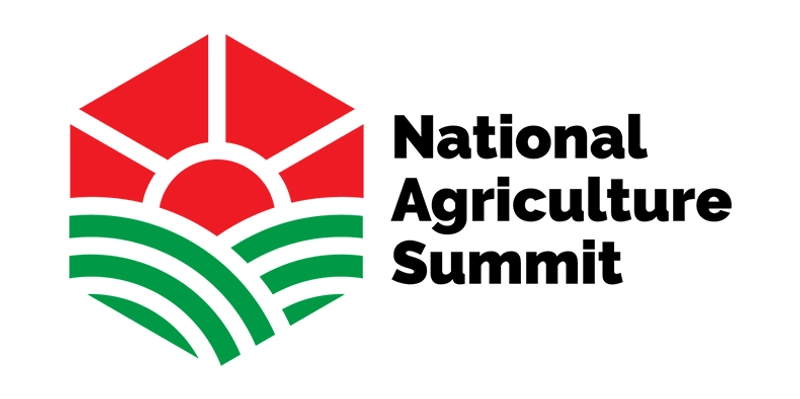
National Agriculture Summit
National Agriculture Summit: Driving Innovation and Sustainability in Agriculture
The National Agriculture Summit stands as a pivotal gathering for the agricultural community, bringing together a diverse group of stakeholders including policymakers, researchers, entrepreneurs, innovators, academia, and industry leaders. Organized collaboratively by ASNET and the Ministry, the summit serves as a dynamic platform to foster meaningful engagement on promoting innovation, research, and a business-friendly environment within the agricultural sector.
This event is designed to accelerate progress in agriculture by addressing key challenges and opportunities related to sustainable development, food and nutrition security, and economic growth. Through rich discussions and knowledge-sharing sessions, the summit aims to empower participants with insights and strategies that can help transform agriculture into a more competitive and innovative industry.
Fostering a Business-Friendly Environment in Agriculture
One of the core focuses of the summit is how to create and maintain a business-friendly landscape for agricultural stakeholders. This means looking beyond traditional farming methods and embracing new ways to increase market access, enhance funding opportunities, and encourage industry collaboration.
Key topics addressed include:
Regulatory frameworks: Policymakers will share perspectives on how regulations can be adapted to support innovation while ensuring fairness and sustainability within the sector.
Funding and investment: Discussions will explore how farmers and agribusinesses can access capital and financial resources that are critical to scaling operations.
Market access and trade: Participants will examine ways to open new markets and streamline supply chains to better connect producers with consumers.
Industry collaboration: Building partnerships between different agricultural players, including public and private sectors, will be emphasized as a way to foster innovation and efficiency.
By addressing these themes, the summit helps lay the groundwork for a more supportive and productive environment where agricultural ventures can thrive.
Enhancing Innovation and Research for Sustainable Agriculture
Innovation and research form the backbone of modern agriculture, offering solutions to some of the most pressing challenges faced by the sector. The National Agriculture Summit provides a unique space for sharing cutting-edge research findings and technological advancements that can drive sustainable agricultural practices.
Areas of focus include:
New crop varieties and breeding techniques aimed at increasing resilience and yield.
Soil health and water management innovations to promote environmental sustainability.
Use of digital tools and data analytics for precision agriculture and resource efficiency.
Integration of renewable energy and eco-friendly technologies in farm operations.
Experts and researchers present at the summit will facilitate exchanges that inspire practical application of these innovations, helping to make agriculture more sustainable, productive, and environmentally responsible.
Policy Insights: Shaping the Future of Agriculture
Policymakers play a critical role in steering the agricultural sector towards growth and sustainability. At the summit, government representatives will outline current and upcoming policies that are designed to encourage innovation, competitiveness, and investment.
Their insights help stakeholders understand:
How regulatory environments are evolving to better support agricultural entrepreneurs.
The role of public-private partnerships in advancing agricultural development.
Strategies to improve food and nutrition security at national and regional levels.
Approaches to creating jobs and wealth through agricultural enterprise.
Such dialogue ensures that policies remain relevant and aligned with the needs of the industry, thereby fostering an environment conducive to long-term agricultural success.
Networking and Collaboration Opportunities
The National Agriculture Summit is not just about learning it is also a hub for building relationships that matter. Attendees have numerous chances to network with peers, experts, and decision-makers, facilitating collaborations that can lead to innovative projects and business ventures.
Benefits of networking at the summit include:
Connecting with potential investors and partners.
Exchanging best practices and success stories.
Forming coalitions to address common challenges.
Exploring opportunities for joint research and product development.
Such interactions are vital in a sector where collaboration often accelerates growth and innovation.
Moving Towards a Sustainable and Innovative Agricultural Future
Ultimately, the National Agriculture Summit aims to be a catalyst for positive change within the agricultural landscape. By bringing together key players from different spheres, the event promotes a shared vision of an agriculture sector that is innovative, competitive, and sustainable.
This vision encompasses not only food security and nutrition but also the creation of wealth and employment, which are essential for the wellbeing of communities and nations alike.

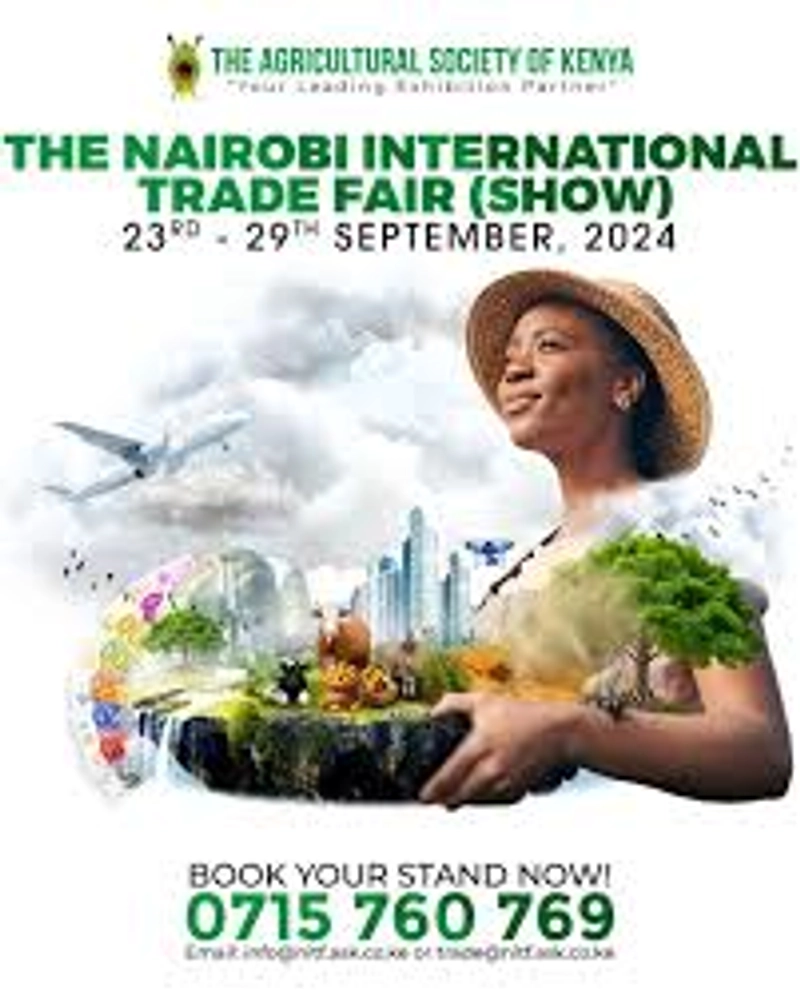
Nairobi International Trade Fair (NITF)
Nairobi International Trade Fair: Advancing Climate-Smart Agriculture for a Sustainable Future
Held in the vibrant heart of Kenya’s capital, the Nairobi International Trade Fair has evolved into one of East Africa’s most influential agricultural expos. Organized annually by the Agricultural Society of Kenya (ASK), the event goes far beyond showcasing products—it is a crucial gathering point for innovation, education, and partnership across the agricultural value chain.
Under the theme "Promoting Climate Smart Agriculture and Trade Initiatives for Sustainable Economic Growth", the upcoming edition reaffirms the fair’s commitment to sustainability, resilience, and economic development. With over 800 exhibitors and a projected 600,000 visitors, this event is not only a marketplace but a strategic hub where global trends meet local expertise.
Why the Nairobi International Trade Fair Matters More Than Ever
As global agriculture grapples with the twin challenges of climate change and food insecurity, the Nairobi International Trade Fair provides a powerful platform to drive practical, scalable solutions. This year’s emphasis on climate-smart agriculture signals a shift toward integrated, sustainable farming systems that balance productivity with ecological responsibility.
The fair serves key purposes for various sectors:
Showcasing innovations in agricultural technology, machinery, and practices
Creating space for trade negotiations and investment opportunities
Encouraging policy dialogue between government, private sector, and civil society
Educating farmers and agribusinesses on climate adaptation strategies
Facilitating youth participation in modern, tech-driven agriculture
By bringing together such a wide range of stakeholders, the event becomes more than an expo—it becomes a catalyst for transformation in regional agriculture.
An Unparalleled Platform for Networking and Collaboration
With an audience size approaching 600,000, the Nairobi International Trade Fair offers unmatched access to diverse professionals across the agriculture, manufacturing, trade, finance, and public sectors. For exhibitors, it is a unique opportunity to present innovations to a high-traffic, targeted audience.
Key groups in attendance:
Smallholder and commercial farmers
Agritech startups and innovators
Exporters and importers of agricultural goods
Government bodies and regulatory agencies
International development partners and NGOs
Agro-financing institutions
Research institutions and universities
This broad participation enables cross-sectoral dialogue and long-term partnerships, particularly around climate-smart investments and technology dissemination.
Climate-Smart Agriculture in Focus
One of the fair’s major objectives this year is to accelerate the adoption of climate-smart agriculture (CSA). This concept combines productivity, adaptation, and mitigation, helping farmers increase output while protecting the environment.
Climate-smart innovations highlighted at the fair include:
Drought-resistant seed varieties and precision irrigation systems
Soil health restoration through regenerative farming
Digital platforms for weather forecasting and market access
Renewable energy solutions for post-harvest processing
Water harvesting technologies for dryland agriculture
Workshops and exhibitions will also explore policy frameworks, subsidy programs, and training modules to support CSA at scale.
Trade Initiatives: Driving Economic Growth Through Agriculture
As a region heavily dependent on agriculture for livelihoods and GDP, Kenya’s economic resilience is closely tied to its agricultural trade landscape. The Nairobi International Trade Fair serves as a springboard for B2B and B2G engagements, allowing participants to identify new market opportunities, form joint ventures, and showcase export-ready products.
Benefits for participants in the trade sector:
Exposure to international buyers and distributors
Opportunities to demonstrate certifications and standards compliance
Learning sessions on trade agreements like AfCFTA and COMESA
Networking with logistics and warehousing service providers
Investment dialogues with banks and development agencies
This year’s theme encourages stakeholders to recognize climate-smart trade not just as ethical, but as profitable and future-proof.
Educational Activities and Youth Engagement
The fair places a strong emphasis on knowledge transfer and capacity building, particularly targeting youth and women, who are often underrepresented in the sector. Through demonstrations, field school showcases, and agri-bootcamps, the fair ensures the next generation of farmers and agribusiness professionals are equipped with the tools and knowledge to lead.
Educational highlights include:
Seminars on smart farming techniques
Career expos for agri-related professions
Live demos of smart tech tools and mechanized equipment
Farmer competitions and exhibitions
Collaborative challenges for student innovators
These activities reflect the broader goal of inclusive agricultural development and ensure the fair’s impact extends well beyond the event dates.
Diverse Exhibitions Covering the Full Agricultural Spectrum
Spanning crop production, livestock, aquaculture, agribusiness services, and input supplies, the Nairobi International Trade Fair offers a comprehensive snapshot of the agricultural sector. From large machinery to bio-organic fertilizers, the diversity of exhibitions reflects both the traditional roots and modern aspirations of Kenyan agriculture.
Some of the key sectors represented include:
Agri-inputs (seeds, fertilizers, crop protection)
Agri-machinery and mechanization tools
Livestock breeding and veterinary services
Food processing and value addition
Logistics, cold chain, and post-harvest solutions
ICT for agriculture and digital platforms
This wide scope encourages both local and international investment, while also enabling smallholder farmers to access tools that can scale their operations sustainably.
A Landmark Event Shaping the Future of African Agriculture
The Nairobi International Trade Fair stands as a testament to Kenya’s agricultural resilience, innovation, and strategic importance in the African economy. By promoting climate-smart agriculture and trade initiatives, it positions itself as more than just a fair—it becomes a regional policy influencer, knowledge hub, and economic driver.
In a time when global agriculture is undergoing seismic change, this event provides clarity, opportunity, and connection. Whether you are a farmer seeking better practices, a tech innovator introducing a new solution, or a policymaker crafting the future of food, the Nairobi International Trade Fair is where your journey continues.

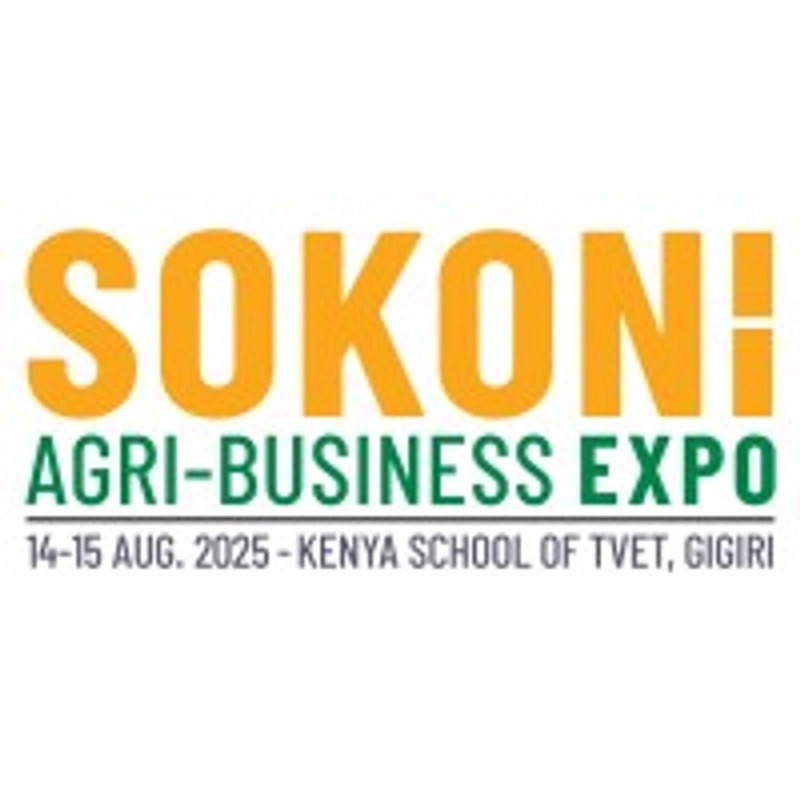
Sokoni Agri-Business Expo
Sokoni Agri-Business Expo: Kenya’s Premier Showcase for Value-Added Farm Products and Food Innovations
Now entering its second edition, the Sokoni Agri-Business Expo has quickly established itself as Kenya’s leading event for showcasing innovation in agriculture and food production. This vibrant exhibition brings together stakeholders from across the agricultural value chain to celebrate creativity, sustainability, and business growth within Kenya’s agribusiness sector.
Celebrating Innovation in Value-Added Agriculture and Food Products
The core of the Sokoni Agri-Business Expo lies in its dynamic exhibition of value-added farm products and food innovations. Exhibitors from diverse backgrounds present a wide array of offerings including:
Organic produce cultivated with sustainable practices
Fresh and processed food products crafted for modern consumer demands
Packaging innovations designed to enhance product shelf life and appeal
Agricultural machinery and technology solutions aimed at increasing productivity
Financial and cooperative services that support smallholder farmers and agribusiness entrepreneurs
Through these displays, the Expo acts as a powerful platform for introducing groundbreaking ideas and solutions that elevate Kenya’s agricultural industry.
A Dual-Zone Approach: Exhibition and B2B Networking
The Sokoni Agri-Business Expo is thoughtfully designed with two primary zones to maximize impact and engagement:
Exhibition Zone – Here, visitors and buyers explore a rich variety of products, from fresh farm items to value-added goods ready for retail shelves. The exhibition encourages discovery, tasting, and direct shopping experiences that connect consumers with producers.
B2B Networking Zone – This area facilitates meaningful business meetings and lead generation opportunities, enabling exhibitors to pitch their products directly to major buyers, including supermarket representatives and distributors.
This dual approach fosters not only brand visibility but also solid business growth and market expansion.
Driving Growth Through Strategic Engagement and Market Access
One of the standout features of the Expo is its commitment to connecting businesses with key market players. By providing a space for targeted B2B meetings, the event helps agri-businesses:
Build relationships with large-scale buyers and retailers
Gain access to supermarket shelf space and distribution networks
Explore partnerships with financial institutions and cooperatives
Exchange ideas and knowledge with peers and industry leaders
These opportunities enable participating businesses to scale up, innovate, and respond effectively to market demands.
An Inclusive Platform for All Stakeholders
The Sokoni Agri-Business Expo welcomes a wide spectrum of participants—from producers and processors to financial service providers and technology innovators. Visitors can expect to find:
Farmers and cooperatives showcasing their products
Food processors offering both traditional and modern value-added goods
Suppliers of packaging and agricultural technologies
Representatives from banks and financing organizations supporting agribusiness
Consumers eager to discover, taste, and purchase quality products tailored for contemporary lifestyles
This inclusivity ensures a holistic approach to advancing Kenya’s agricultural and food sectors.
Shaping the Future of Agribusiness in Kenya
As it moves into its second successful edition, the Sokoni Agri-Business Expo stands as a beacon of innovation and opportunity in Kenya’s agribusiness landscape. By bridging the gap between producers, buyers, and service providers, the Expo plays a vital role in driving sustainable growth and transforming agricultural value chains.
For businesses looking to expand their reach and consumers eager to experience the best of Kenya’s farm-to-table products, the Sokoni Agri-Business Expo remains an essential event that celebrates the creativity and potential of the nation’s agricultural sector.

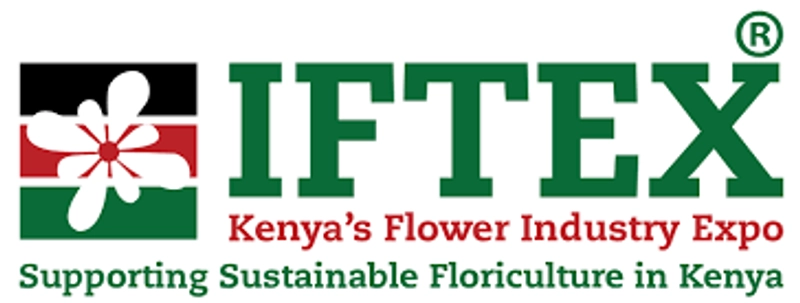
IFTEX Expo Kenya
IFTEX Expo Kenya is a significant biennial event that brings together professionals from the global flower industry, offering them a unique opportunity to showcase products and services to international buyers. Held in Nairobi, the event shines a spotlight on Kenya's rapidly growing floriculture industry, which has become a major player on the world stage. The expo serves as a crucial platform for exchanging knowledge, fostering business relationships, and exploring the latest trends, innovations, and opportunities in the floriculture sector.
One of the key features of IFTEX is the strong partnership between Kenya and the Netherlands, two nations that have collaborated closely to drive growth and innovation in the flower industry. Dutch expertise has been instrumental in advancing the sector, providing Kenya with access to global markets, cutting-edge technologies, and sustainable farming practices. This collaboration has enabled Kenyan floriculture to thrive, allowing local farmers to meet the demands of international buyers while maintaining high standards of quality and sustainability.
Kenya’s natural advantages, such as its favorable climate and government support, have played a pivotal role in the growth of its floriculture industry. However, the sector faces ongoing challenges, particularly from the effects of climate change, which threaten to disrupt production cycles and impact crop yields. Despite these challenges, the partnership between Kenya and the Netherlands continues to provide valuable solutions, with Dutch innovations in technology and sustainability helping to mitigate some of the risks posed by changing environmental conditions.
IFTEX Expo Kenya not only highlights the importance of these international partnerships but also provides a space for industry professionals to discuss the future of floriculture, explore new market trends, and share ideas for tackling the challenges facing the sector. As the global demand for flowers continues to grow, the event plays a crucial role in shaping the future of the floriculture industry, ensuring that Kenya remains a key player in the international flower trade. Through collaboration, innovation, and a commitment to sustainability, the floriculture sector in Kenya is poised for continued success on the global stage.

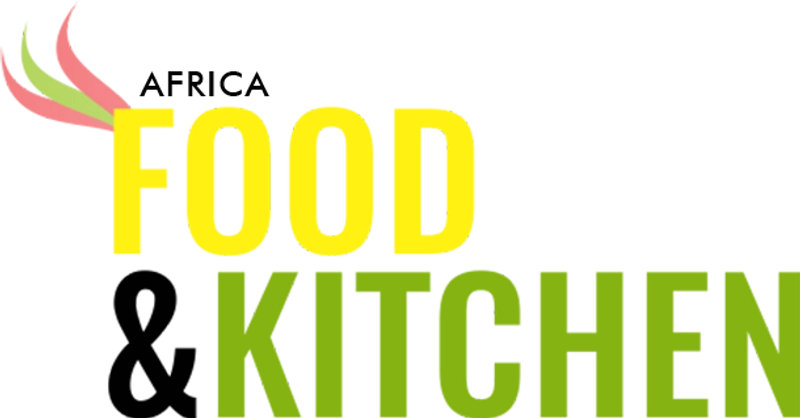
FOODAGRO - KENYA
FOOD & KITCHEN (FOODAGRO) KENYA presents an impressive showcase of products, equipment, and machinery brought forth by exhibitors representing over 26 nations. This trade show boasts a dynamic lineup of both local and international companies, serving as an optimal platform for product debuts, discovering new buyers and distributors, enhancing brand visibility, fostering customer relationships, and staying abreast of industry trends. FOOD & KITCHEN AFRICA serves as the prime venue for unveiling new offerings and equipment to the food, beverage, hospitality, kitchen equipment, and agricultural sectors, while also attracting fresh clientele, consumers, and potential partners.
With a population of approximately 54 million people and a gross domestic product (GDP) of around $109 billion, Kenya heavily relies on food and beverage imports to meet domestic demand and diversify consumption patterns. Positioned as a key entry point in Africa, Kenya re-exports a significant portion of imported goods to neighboring regions. The import value of food and beverages to Kenya amounted to approximately 16.5 billion Kenyan shillings (KSh), equivalent to roughly 142 million U.S. dollars. Primary imports in this sector include maize, unmilled wheat and wheat flour, rice, sugar, fishery products, vegetables, dairy products, edible oils and fats, coffee, tea, and spices.